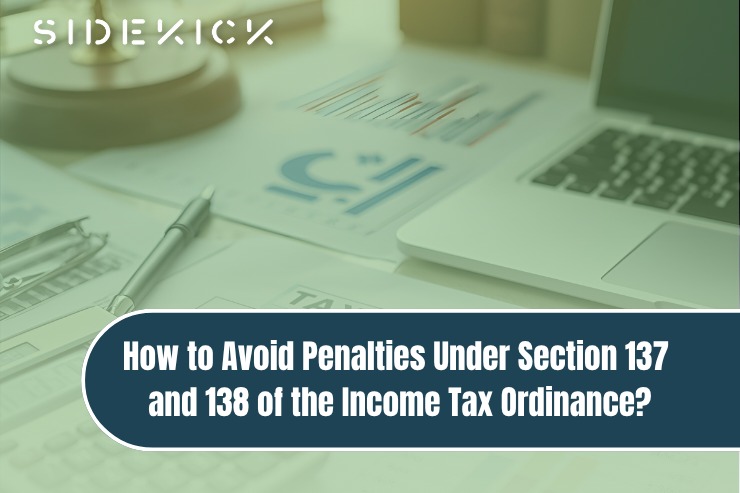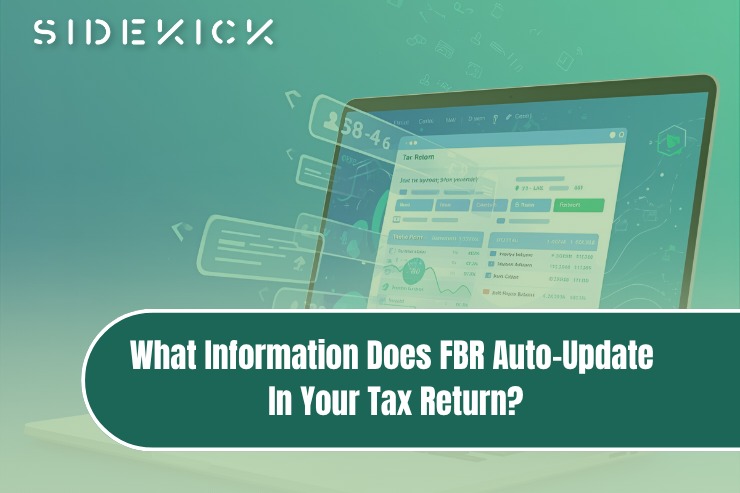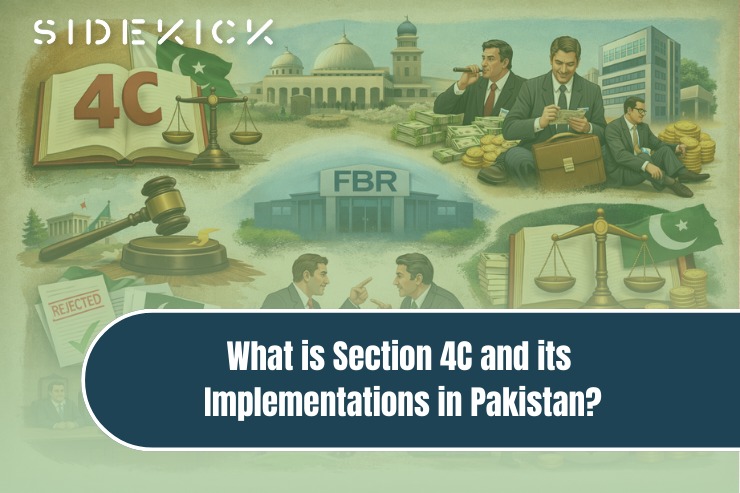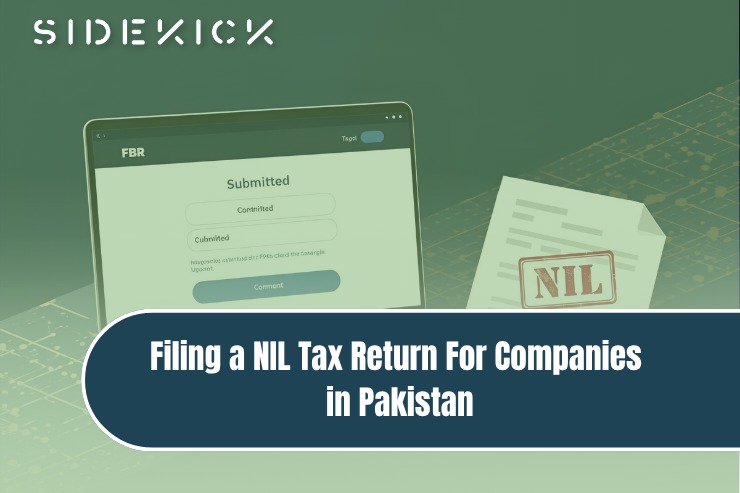The urgency cannot be overstated if you receive a Section 137 notice from the Federal Board of Revenue (FBR). Comprehending Section 137 and Section 138 of the Income Tax Ordinance is crucial for both business and individuals in Pakistan. This blog guides you with the meaning, the complications, and how to avoid any penalties or recovery action pertaining to Section 137 and 138.
What is Section 137 of the FBR?
Simply put, Section 137 of the Income Tax Ordinance stipulates the date within which tax is to be paid. As stated under subsection (1), any tax imposed and considered payable with your annual returns becomes due on the date of which the annual returns are to be made. In Subsection (2), it is explained that a notice should be served and payment made within thirty days when the payment of tax is payable after assessment or amended assessment. Subsection (4) enables the Commissioner to provide an extension or an installment, but a default surcharge accrues. Section 138 of the Income Tax Ordinance is concerned with the tax recovery. It renders FBR the power to issue a notice that requires payment of tax due, and should the tax not be paid in the specific time, the Commissioner is allowed to take steps towards the recovery of the same. These involve attachment of movable or immovable property, appointing a receiver, and worst of all, arrest and detention of the taxpayer. Recent law amendments (Tax Laws Amendment Ordinance 2025) have refined this further, meaning that FBR is now at liberty to treat tax as immediately recoverable in case of final court decision or notice, and override other provisions. Combined, Sections 137 and 138 establish a pay on time/ recover if you don’t platform, and both sections require an understanding to comply.
Do You Know Which Tax Terms Can Help You Claim Deductions Legally?
Get in Touch
Fill out the form below, and we will be in touch shortly.
Implications and Penalties
Any defaulting of deadlines under Section 137 may result in default surcharges, interest, and leave the way to action under Section 138. Practically, FBR considers the payment time running under the Section 137 notice. After expiry of the deadline, non-payment would result in the Commissioner recovering the tax under Section 138. For instance, the bank, employers and third parties may receive the notices under Section 138/140 freeze or divert payments. Any ruling by the High Court or Supreme Court that the taxpayer is liable to the payment of tax may can make the tax payable and recoverable at once under the non-obstacle provision on Section 138(3A) which is, courts can no longer suspend recovery merely because an appeal was being sought. This makes active compliance under Section 137 and a quick response to the notices under Section 138 even more significant.
Five major steps should be taken to get out of being caught in violation of Section 137 and 138:
- Monitor filing and payment deadlines. Ensure that your annual return date of payment plus tax under Section 137 (1) is calendared. Additionally, when you are given an assessment/amended assessment, determine the thirty-day payment period in Section 137 (2)
- Act immediately in response to a Section 137 notice. A 137 notice from FBR with an amount payable is issued by FBR, the date of the notice is considered to calculate your payment deadline. Delaying can lead to recovery under Section 138, and a default surcharge
- In case you do not agree with the FBR assessment, act quickly. File your appeal, and also seek a stay of recovery pending litigation. In the meantime, you can make any payment that is undisputed. Court cases put a lot of emphasis on the fact that recovery under Section 138 proceedings may take place even during appeals.
- Request installments or extension in accordance with Section 137 (4) in case of tight cash flow. Make a written application with evidence of good cause and offer an installment plan. This can make a default surcharge bearable and prevent Section 138. This is only possible when it is done before missing payment.
- Understand that according to Section 138 of income tax act punishment, attachment of back accounts, movable/immovable property appointment for tax receivers and even arrest (in extreme cases) if noncompliance is occurred after notice is legally valid. If you get a recovery notice, immediately hire tax counsel, negotiate payment plan, and maintain communications with FBR.
Sidekick as your Way out for Notices under Section 137 and 138
When all the legal proceedings sound overwhelming, this is where Sidekick, a full-service taxation, accounting, and business management comes in. Sidekick provides an array of services such as tax planning and compliance, accounting services, business management, and staff augmentation. In matters pertaining to Section 137 and 138, Sidekick can assist in the following:
- Checking your tax filing schedule and keeping track of compliance dates so that you would never be left behind on due date under Section 137
- Dealing with the preparation and submission of tax returns and payments on time, so when FBR sends you a 137 notice, all the documentation is ready.
- Supporting appeal strategy (making appeals, stay applications) and maintaining communications with FBR to deal with tax recovery through Section 138 notice prior to the coercion of enforcement becoming effective.
- Offering bookkeeping, accounting and cash-flow forecasting to enable you to apply under Section 137(4) under clear evidence of good cause to grant you installments or risk to mitigate the risk of default surcharge.
- Provide staff augmentation with the added internal workload of dealing with FBR notices, assessments, as well as recovery proceedings, so that your business does not lose track of dealing with the tax compliance.
In short, when you team up with Sidekick, you will not be working in isolation as adherence to the Section 137 and Section 138 turns into a controlled exercise and you have more freedom.
Conclusion
Taxpayers in Pakistan cannot do without understanding Section 137 and 138. Section 137 provides the due date within which you pay taxes; Section 138 of Income Tax act offers FBR with the necessary legal means to collect the unpaid amount. Breach the deadline as provided by Section 137 and you are subjecting your business to the rapid action of recovery as provided by Section 138. These sections should be given priority whether you are an individual taxpayer or in charge of a business. Plot your deadline, keep track of payment dates, make appealing pleas when necessary and consider engaging with a reputable company like Sidekick to manage your compliance. With the proper assistance, you can escape penalties, remain within the law and have the recovery equipment not set its gaze on you.







